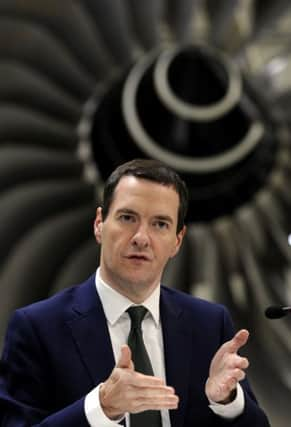Chancellor to close “unfair” gaps in schools funding


Campaigners say the current system sees Yorkshire schools miss out on £40m a year that they would receive if the disparities in per pupil funding were ended.
Local authorities, teaching unions, MPs and spending watchdogs have been campaigning for the change - promised by the Department of Education in 2012.
Advertisement
Hide AdAdvertisement
Hide AdThe f40 campaign group, representing some of the worst funded areas in the country, has been calling for an overhaul of the system for more than a decade.
The group includes several authority areas in Yorkshire including the East Riding, North Yorkshire and Wakefield.
Now the Chancellor will use Wednesday’s Spending Review to set out plans to end the present system, which is based on 10-year-old data and means the 10 best-funded areas get £2,000-plus more per pupil than the 10 worst.
There are separate concerns that the current system sees rural areas miss out but also that children in some of the poorest areas of the country have seen their schools funding decline.
Advertisement
Hide AdAdvertisement
Hide AdA National Audit office investigation found schools in some of the poorest areas saw funding fall by more than five per cent between 2010-11 and 2014-15 despite the pupil premium top-up for disadvantaged youngsters.
Knowsley in Merseyside receives nearly £750 per pupil less than Wandsworth, in south London, even though more of its pupils are on free school meals.
Under the proposals - to be published for consultation next year by Education Secretary Nicky Morgan - a national per-pupil rate will be topped up according to numbers of disadvantaged and poorly-performing students.
Prior to their introduction, the existing system will be made “more consistent and better focused”, a Government source said.
Advertisement
Hide AdAdvertisement
Hide AdMr Osborne is also expected to say that funding for the pupil premium will be held at its current rate of £2.5 billion a year.
A Government source said: “This is a key part of our goal of extending opportunity and providing educational excellence, everywhere. It means bringing an end to a system that has become arbitrary and unfair.
“We’ll ensure that there is a smooth transition, with a pace of change that is manageable for schools and local authorities.
“We are ensuring schools across England are funded fairly so that parents know all pupils, whatever their background and wherever they live in the country, have access to a good education.”
Advertisement
Hide AdAdvertisement
Hide AdReforms are also expected to be applied to funding for high needs and early years.
More than 100 MPs including several Yorkshire Conservatives wrote to David Cameron last month urging him to introduce a fairer funding formula for schools. The letter was led by Beverley and Holderness Tory MP Graham Stuart who is the vice chairman of the f40 group and a former chairman of the House of Commons Education Select Committee.
The Yorkshire Post previously revealed that according to the f40 group the current system sees the region’s schools miss out on £40m-a-year which they would receive if the funding system did not have such large disparities. The new Conservative MP for Richmond Rishi Sunak also highlighted the issue last month.
He said the current system was based on historic criteria which discriminated against rural areas adding: “There can be no justification for a formula which gives schools in Bradford and Middlesbrough about £400 per pupil more than North Yorkshire.
Advertisement
Hide AdAdvertisement
Hide AdEarlier this year Mr Cameron had said that an extra £390m awarded to schools in some of the worst funded areas of the country last year to close the gap would be repeated in this Parliament.
Schools funding is one of the areas of spending protected from the latest round of cuts to be set out by Mr Osborne on Wednesday, alongside his Autumn Statement.
But the Department for Education is one of a number of major Whitehall departments with which the Chancellor is still to confirm he has done a deal as last-ditch negotiations continue.
So far 11 agreements have been announced, amounting to an average 24 per cent drop in funding between now and 2020 - meaning £4 billion of savings.